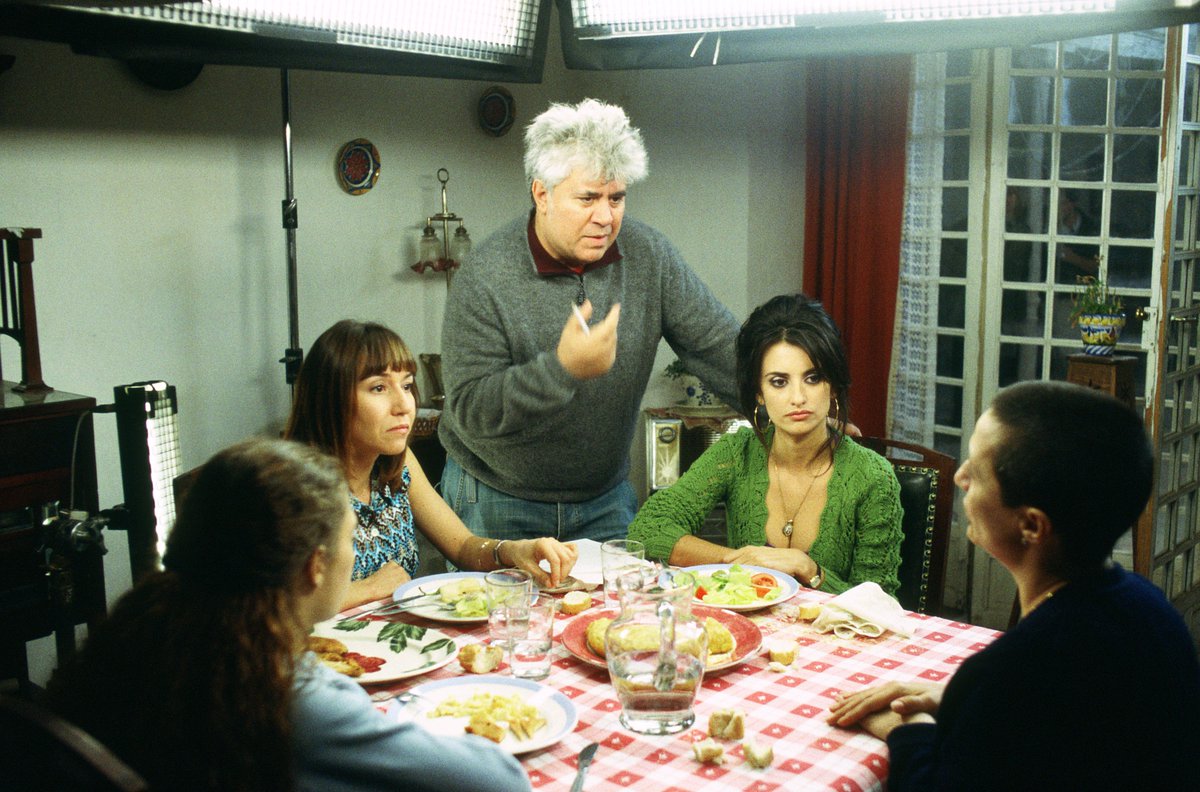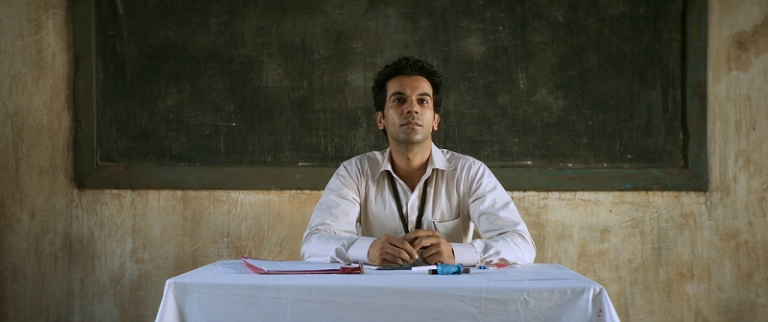Pedro Almodóvar’s Volver (2006): This month, Almodóvar premiered his second English language short film at the Cannes Film Festival, Strange Way of Life. Since he announced the film, people have wondered how much he will subvert usual expectations for a Western and change this conservative American genre into something revolutionary and queer. Especially since his last film, Parallel Mothers, Almodóvar’s politics have been at the center of the conversation.
For many, it seems that even though he has always been subversive, he has had a rebirth as a defiantly political filmmaker. However, almost 20 years ago, Almodóvar’s film Volver marked a turning point in his career as it combines ideas birthed from the Spanish artistic movement from the 70s and 80s, La Movida, and left behind from Franco’s days.
In this film, his characters are not struggling to keep up in the strange and comic Madrid underground as was his custom, but traditional women caught between two worlds. Volver merges the world of Spain’s Francoist past with its postmodern present through this domestic ghost story by celebrating women who are molded by Francoist tradition but advocating for solidarity among women across the world and reconciling with the generational trauma Spain had not adequately addressed during La Movida.
Volver’s story of two Manchegan women now living in Madrid, Raimunda, and Sole, traces its roots to the days of the dictatorship with the haunting death of their two parents, particularly their mother. Mixed in this melodrama in the style of Mildred Pierce is a story about the many wounds left behind by this oppressive dictatorial era. Under Franco, women were given high expectations dictated to them by the Catholic Church.
Not only did Franco exempt the church from fiscal obligations and state meddling, but he also granted it the right to exercise censorship over any text or discourse not to its liking. Adultery became a crime for which women were punished more harshly than men. Almodóvar’s late mother, to whom he dedicated the film, knew all too well about this inescapable and morally backward society.
In many ways, Almodóvar’s tribute to the women of his past is also accompanied by innately Francoist mentalities about the place of women in society, especially around issues of domesticity. The film upholds the idea that every issue, no matter how big, can be solved through women’s domestic ingenuity.
Comedy emphasizes this point throughout the film, especially in the scenes after Raimunda’s husband, Paco’s, murder. When a male neighbor comes over to ask a favor of Raimunda, he spots the blood on her neck. When he asks her what’s wrong, she says, “Oh, cosa de mujeres” or “Oh, women’s troubles.” Cleaning up blood from her dead husband is a woman’s trouble and does not need further explanation. While the men around them are sex obsessed, the women seem almost asexual, showing no desire to date at all.
While Almodóvar adheres to a lot of traditional ideals, it is still clear he has not left his Movida modalities behind. La Movida, the Spanish artistic movement of the 70s and 80s, was a party without much political substance but with many vibrant Spanish characters. Almodóvar, the symbol of La Movida, believed that Spain’s best music, film, and art came out of this period in Madrid.
For many, La Movida represented the best of Spain but also the most frivolous aspects of Spanish society. La Movida celebrated the end of the dictatorship but did not offer a new direction, simply a party invitation. By the time Almodóvar made Volver, La Movida had ended, and the urgency to manifest creativity in Madrid had ended. He would have to look somewhere else for inspiration.
Where Movida trumpeted the growth of Madrid as the world’s cultural capital, Almodóvar takes a sympathetic look at the people that Post-Modern Madrid has failed to help. Unlike the Madrid of Movida, or of Almodóvar’s films of the 1990s, with their high-concept visions of the capital of a ‘new’ Spain defined by its monumental past and equally massive projections into the future, Volver represents Madrid as a graffiti-scarred capital with migrants placed in a state of suspension.

The women in the film are forced to engage in illegal activity in order to survive abusive behavior and earn their own money. Most of the women we meet participate in the informal economy. Sole runs an illegal hairdresser, Raimunda has illegally taken over a restaurant, and Regina, Raimunda’s neighbor, works as a prostitute.
Volver shows the uneven development process of late modernity and how its failures have led to a disconnect from traditional society. The failed modernity of Madrid represents a blindspot of Spanish society. This also manifests in the generational trauma around domestic violence, a conversation that in 2006 was very new in Spanish film and politics.
Raimunda has to clean up a murder her daughter committed after her husband attempted to rape her. Meanwhile, Raimunda’s own mother remained blind nearly all her life to the horrors her husband committed against her daughter. The problems of the past have not been erased.
The subject of domestic violence became increasingly politically charged at the turn of the century when the conservative Partido Popular (PP) was criticized for failing to address the issue in government. Before the 2000s, in Spanish cinema, there were three models for domestic violence depiction: the comic, the passionate, and the allegorical. The only Spanish films to categorically condemn domestic violence in the 1990s were shown as allegories for Francoism.
By depicting abuse across generations, Almodóvar shows that this issue was present not only during Franco’s reign but also in modern-day Spain. To scapegoat Francoism for today’s issues of domestic violence would be wrong. Today’s Spanish society has a part to play in perpetuating domestic violence. He recognizes that post-Movida Madrid still has a lot of work to do. While Raimunda’s rape by her father can be blamed on Francoism, her husband’s attempted rape of her daughter is an issue of modern Spain.
In Almodóvar’s eyes, the only solution is a radical one: to create a sisterhood and unbreaking solidarity with the women of Latin America. In the most famous scene from the movie, Raimunda sings “Volver,” a song her mother taught her. Narratively, it allows this estranged daughter to reach out to a mother she does not know is listening. The song also acts as a “‘phonic bridge,’ traversing otherwise bordered spaces, uniting seemingly distanced audiences.
The version of ‘Volver’ Penelope Cruz sings is a flamenco rebranding of the Argentine song of the 1930s that comes to embody the empirical reality of a deterritorialized Hispanic community that has taken shape most notably in Madrid’s ‘pequeño Caribe”. This sequence not only connects Raimunda to her rural past but to Latin America.
The choice of this song is fascinating when you consider that it has become an anthem for the Latin American exile community, particularly left-wing exiles. This scene alone constitutes a clean break from Francoist and Movida ideals. Almodóvar sides with left-wing exiles and is not seeking approval from the rest of Western Europe. He allies himself with Latin America.
The Madrid barrios where Soledad and Raimunda live (Vallecas and Tetuan) have substantial migrant communities. So much so that when their mother comes to live with Sole and poses as her employee, she disguises herself as an immigrant. When her mother suggests that she could pass for Dominican or Chinese, Sole tells her that there are already too many people of Chinese and Dominican descent in the barrio, and they would be able to tell she was not from there.
While Volver is heavily influenced by Almodóvar’s childhood experiences under Francoism and his early adulthood under La Movida, this film exists as a melting pot of these ideas as well as a criticism of their shortcomings. The time to celebrate Spain’s achievements, whether through nationalism or cultural revolution, is over.
Through Volver, Almodóvar represents what can be learned from these two distinct eras and what still needs to be done. Even as they face economic turmoil and silent abuse, the strength among these women shows that solutions to Francoist and Movida problems can finally be realized through solidarity.


![Mountains May Depart [2016] : A Capitalistic punishment.](https://79468c92.delivery.rocketcdn.me/wp-content/uploads/2016/10/Mountain-May-Depart1-768x432.jpg)
![Loveless [2017] – A Blistering Tale of Contemporary Human Relations](https://79468c92.delivery.rocketcdn.me/wp-content/uploads/2018/02/mw2tuy53lbbffhwkxpvjkfu5su-768x432.jpg)



